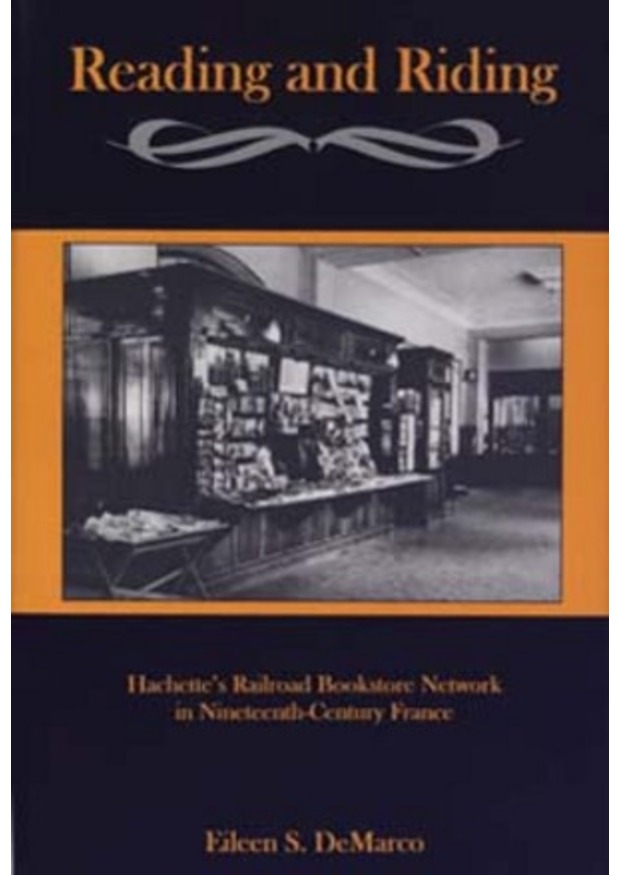Hachette's Railroad Bookstore Network in Nineteenth-Century France
Reading and Riding is the first in-depth study of Hachette and Company's railroad bookstore network. The Bibliothèque des Chemins de Fer, begun in 1853 as a means to market a special collection of books to train travelers, developed into France's first national chain bookstore. This analysis of the railroad bookstore network demonstrates how it transformed Hachette and Company from an academic publishing house into Europe's dominant publisher and distributor of all types of books, newspapers, and periodicals. It reveals the network's critical role in the modernization of the French publishing industry through the application of new marketing techniques, the use of the growing rail network as a primary means of distribution, and the large-scale employment of women.
By the turn of the century, books and periodicals had become consumer products in a new era of mass literary culture, and the railroad bookstore network was a primary factor in this evolution. Reading and Riding challenges commonly held assumptions about French enterprise and the extent and effectiveness of government censorship during the nineteenth century. The heated debate on Hachette's monopoly of the sale of reading material in train stations and the ensuing battle among publishers for a place in that arena vividly illustrate the potent influence of power relations and market forces in French public life. The pervasive presence of the railroad bookstore network in France from the nineteenth century through to today commands our attention to its influence not only on popular culture but also on public policy debate.
Today we are acutely aware of the impact of media on politics, consumer trends, and popular culture. As the primary distributor of print media in nineteenth-century France, the railroad bookstore network played a paramount role in shaping French politics, particularly in light of the parliamentary crisis of May 16, 1877. The network's persistence in selling opposition newspapers during that bitter electoral battle kept the public engaged with the ideas and agendas of liberal politicians, resulting in a republican victory that solidified the foundation of the Third Republic. The history of the railroad bookstore network teaches us that the influence of print media in both the private and public spheres should not be underestimated.
Reading and Riding draws from a range of sources, especially Hachette's private company archives, which have become available to researchers only recently. It also incorporates evidence from railroad company archives as well as the records of the Second Empire and Third Republic governments.
The study will appeal to readers interested in the history of publishing, the history of France, as well as the history of consumer culture and women's studies.













